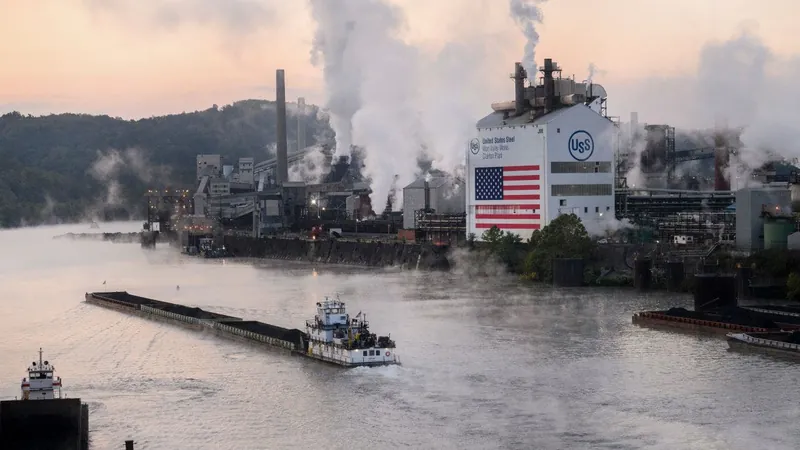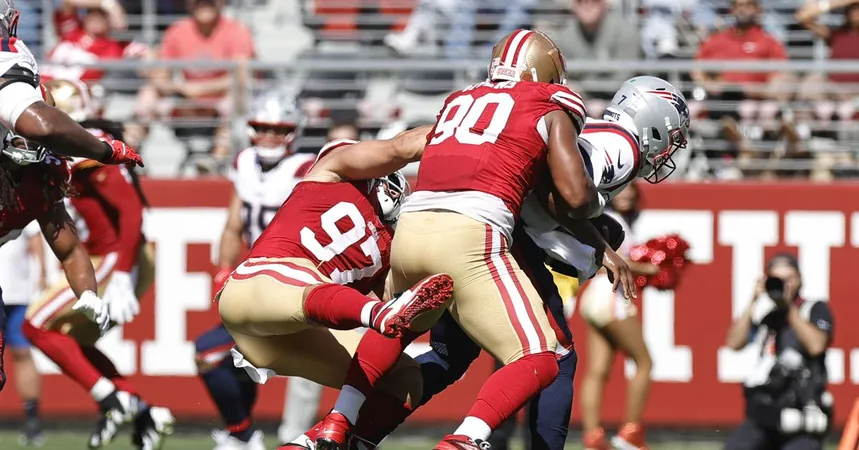
Major Green Light for $14.9 Billion Nippon Steel and U.S. Steel Merger Amid Union Concerns
2024-09-25
Author: Ting
In a pivotal ruling that has potential ramifications for the future of American steel manufacturing, an arbitration board concluded on Wednesday that Nippon Steel's proposed $14.9 billion acquisition of U.S. Steel is compliant with the labor agreement set forth by the United Steelworkers (USW) union. This decision marks a significant step forward for the controversial merger that has faced objections from labor groups.
The arbitration body, chosen jointly by U.S. Steel and the USW, determined that U.S. Steel has adhered to its obligations under the labor contract, despite the union's strong opposition. According to U.S. Steel, the arbitrators validated that Nippon Steel recognized the USW as the bargaining representative for its workforce and made assurances of its willingness and financial capacity to respect U.S. Steel's commitments to its employees.
"This arbitration ruling allows us to focus on advancing our pending transaction with Nippon Steel," stated U.S. Steel CEO David Burritt. The CEO emphasized the strategic benefits that such a merger would entail, noting commitments from Nippon Steel to invest significantly in U.S. operations, ultimately benefitting employees, communities, and customers alike.
Despite this progress, the merger is not without challenges. The Committee on Foreign Investment in the United States (CFIUS) is currently conducting a regulatory review to assess national security implications surrounding Nippon Steel’s acquisition. Notably, this review is under scrutiny as key political figures, including President Joe Biden and former President Donald Trump, have expressed skepticism about the deal.
The USW has not taken this arbitration ruling lightly. They voiced their disappointment, asserting that they disagreed with the arbitrators' endorsement of Nippon Steel's intentions. “The arbitrators accepted Nippon Steel's assurances despite our concerns about the company's potential ability to detach from our negotiated contracts,” a USW representative stated, underscoring their fears regarding job security amid the merger.
Nippon Steel has publicly committed to fostering a constructive relationship with the USW and has signaled its intention to fulfill obligations that exceed the current labor agreement, vowing to prioritize the well-being of U.S. Steel employees and ensure expansion in American manufacturing.
As the situation unfolds, the stakes remain high. U.S. Steel has recently indicated that if the merger does not go through, it might have to scale back operations in key locations, jeopardizing jobs in the Pittsburgh and Gary areas. With an ambitious $2.7 billion investment pledged by Nippon Steel for upgrades if the merger is successful, the outcome of this acquisition could greatly influence the future of the steel industry in the United States.
As regulatory hurdles persist, the business community is watching closely. The discussions surrounding this merger highlight not only corporate strategies but also the ongoing tug-of-war between labor rights and multinational corporate interests. Will Nippon Steel succeed in its acquisition, or will the voices of the USW prevail? Only time will tell as the narrative continues to develop.



 Brasil (PT)
Brasil (PT)
 Canada (EN)
Canada (EN)
 Chile (ES)
Chile (ES)
 España (ES)
España (ES)
 France (FR)
France (FR)
 Hong Kong (EN)
Hong Kong (EN)
 Italia (IT)
Italia (IT)
 日本 (JA)
日本 (JA)
 Magyarország (HU)
Magyarország (HU)
 Norge (NO)
Norge (NO)
 Polska (PL)
Polska (PL)
 Schweiz (DE)
Schweiz (DE)
 Singapore (EN)
Singapore (EN)
 Sverige (SV)
Sverige (SV)
 Suomi (FI)
Suomi (FI)
 Türkiye (TR)
Türkiye (TR)